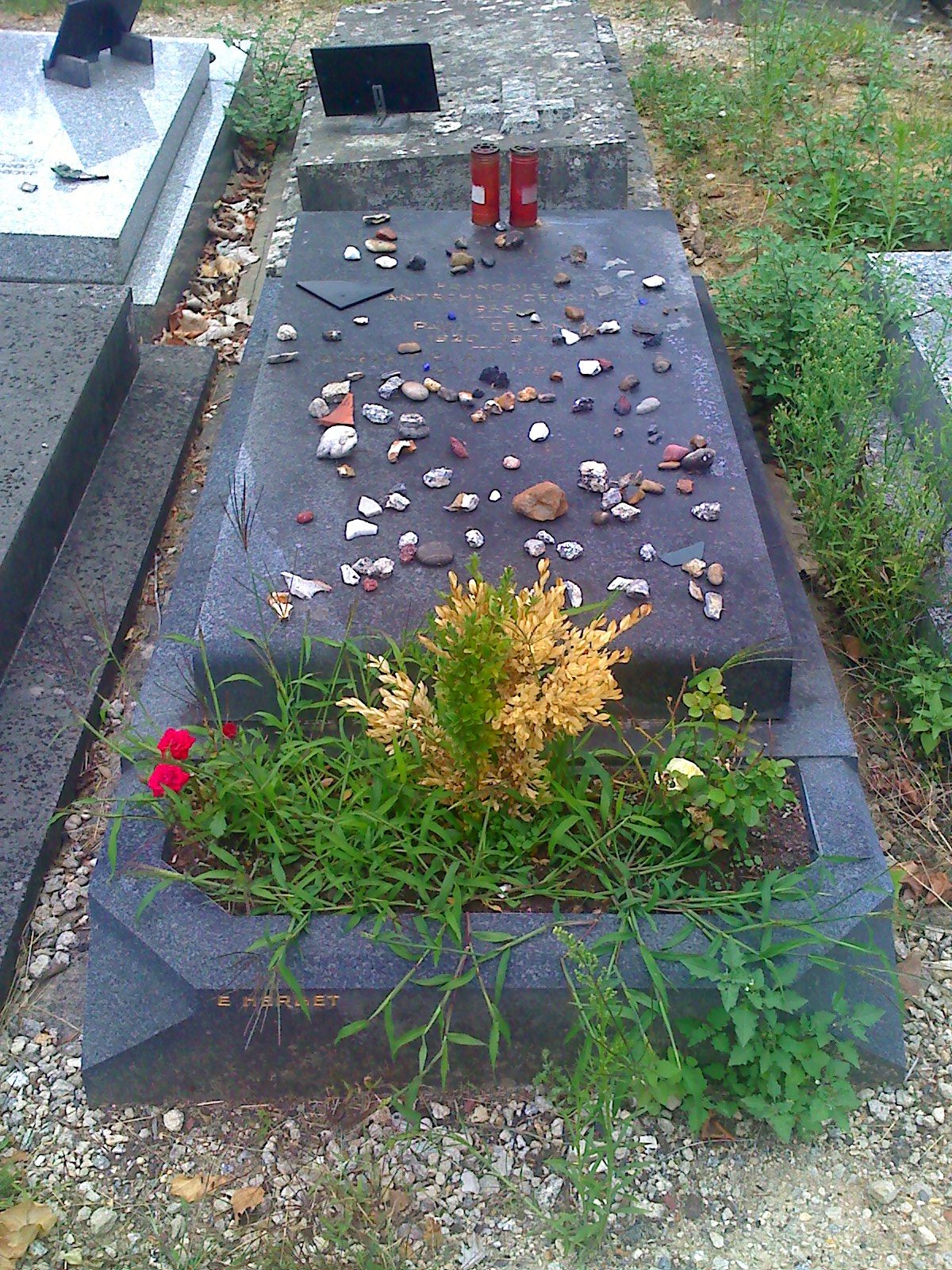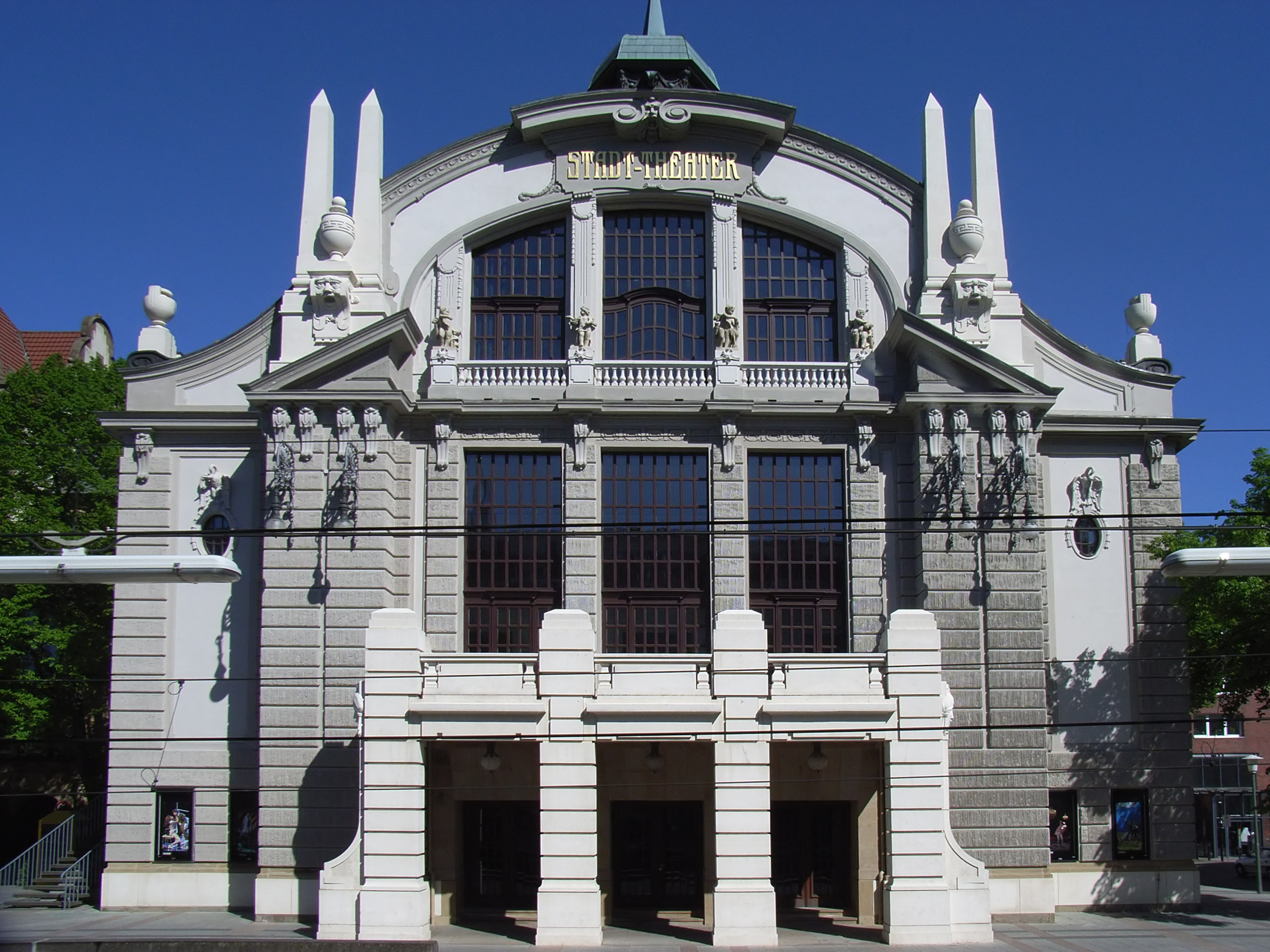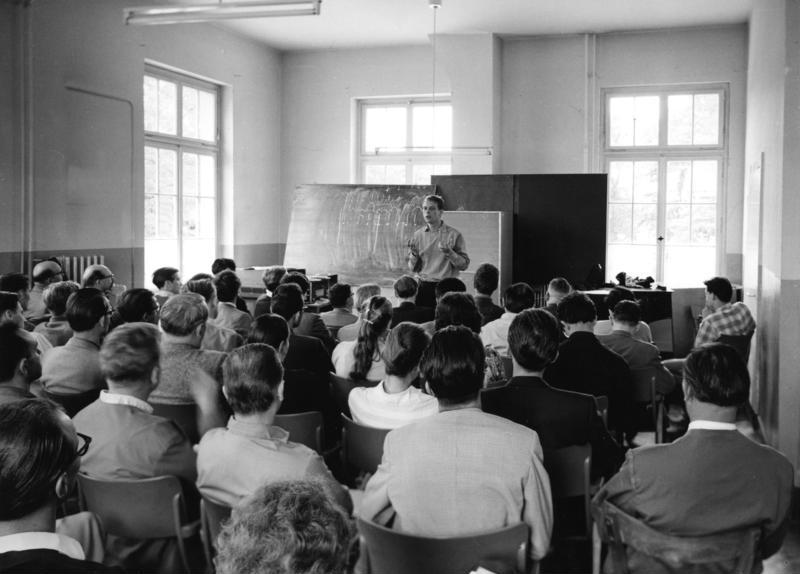|
Tilo Medek
Tilo Medek, originally Müller-Medek (22 January 1940 – 3 February 2006), was a German classical composer, musicologist and music publisher. He grew up in East Germany, but was inspired by the Darmstädter Ferienkurse. He composed radio plays and incidental music. His setting of Lenin's '' Decree on Peace'' led to restrictions, and after he showed solidarity with the expatriated Wolf Biermann, he also had to move to the West, where he composed an opera ''Katharina Blum'' based on Heinrich Böll's novel, and worked in education. He received international awards from 1967 onwards. Career Müller-Medek was born in Jena, the son of the composer and musician Willy Müller-Medek (1897–1965) and his wife Rosa (1902–1976). He received musical training at the Jenaer Musikschule in violin, piano, improvisation and music theory. In 1957 he attended the 12th Darmstädter Ferienkurse in the western part of Germany where he took classes with Alexander Jemnitz, Luigi Nono, Hermann Scher ... [...More Info...] [...Related Items...] OR: [Wikipedia] [Google] [Baidu] |
Jena
Jena () is a German city and the second largest city in Thuringia. Together with the nearby cities of Erfurt and Weimar, it forms the central metropolitan area of Thuringia with approximately 500,000 inhabitants, while the city itself has a population of about 110,000. Jena is a centre of education and research; the Friedrich Schiller University was founded in 1558 and had 18,000 students in 2017 and the Ernst-Abbe-Fachhochschule Jena counts another 5,000 students. Furthermore, there are many institutes of the leading German research societies. Jena was first mentioned in 1182 and stayed a small town until the 19th century, when industry developed. For most of the 20th century, Jena was a world centre of the optical industry around companies such as Carl Zeiss, Schott and Jenoptik (since 1990). As one of only a few medium-sized cities in Germany, it has some high-rise buildings in the city centre, such as the JenTower. These also have their origin in the former Carl Zeiss fa ... [...More Info...] [...Related Items...] OR: [Wikipedia] [Google] [Baidu] |
Walther Vetter
Walther Hermann Vetter (10 May 1891 – 1 April 1967) was a German musicologist. From 1946 to 1958, he was professor at the Humboldt University of Berlin. Life Born in Berlin, Vetter, Lutheran, was the son of the Kapellmeister Johannes Vetter (1860–1928), a founding member of the Berlin Philharmonic. In 1897 the family moved to Greiz in the Principality of Reuss-Greiz (today: Thuringia), where the father founded an orchestra. Vetter first attended the and then, until the Abitur, the Latina (Old school) of the Francke Foundations in Halle an der Saale. From 1910, he studied musicology, art history and philosophy at the Martin Luther University of Halle-Wittenberg and conducting at the Leipzig Conservatory (with Hans Sitt, Stephan Krehl and Richard Hofmann). In 1914 he passed the conducting examination. During World War I, he served in an army music corps (1914/15) and as an army soldier among others at Hartmannswillerkopf and before Verdun on the Western Front (1915–1918). ... [...More Info...] [...Related Items...] OR: [Wikipedia] [Google] [Baidu] |
Todesfuge
"" (Deathfugue) is a German language poem written by the Romanian-born poet Paul Celan probably around 1945 and first published in 1948. It is one of his best-known and often-anthologized poems. Despite critics claiming that the lyrical finesse and aesthetic of the poem did not do justice to the cruelty of the Holocaust, others regard the poem as one that "combines mysteriously compelling imagery with rhythmic variations and structural patterns that are both elusive and pronounced". At the same time it has been regarded as a "masterful description of horror and death in a concentration camp". Celan was born to a Jewish family in Cernauti, Romania (now Chernivtsy, Ukraine); his parents were murdered in the Holocaust, and Celan himself was a prisoner for a time in a work camp. The poem has reached international relevance by being considered to be one of the most important poems of the post-war period and the most relevant example of ''Trümmerliteratur''. Summary The poem is 36 l ... [...More Info...] [...Related Items...] OR: [Wikipedia] [Google] [Baidu] |
Paul Celan
Paul Celan (; ; 23 November 1920 – c. 20 April 1970) was a Romanian-born German-language poet and translator. He was born as Paul Antschel to a Jewish family in Cernăuți (German: Czernowitz), in the then Kingdom of Romania (now Chernivtsi, Ukraine), and adopted the pseudonym "Paul Celan". He became one of the major German-language poets of the post-World War II era. Life Early life Celan was born into a German-speaking Jewish family in Cernăuți, Bukovina, a region then part of Romania and earlier part of the Austro-Hungarian Empire (when his birthplace was known as Czernowitz). His first home was in the Wassilkogasse in Cernăuți. His father, Leo Antschel, was a Zionist who advocated his son's education in Hebrew at the Jewish school ''Safah Ivriah'' (meaning ''the Hebrew language''). Celan's mother, Fritzi, was an avid reader of German literature who insisted German be the language of the house. In his teens Celan became active in Jewish Socialist organizations and f ... [...More Info...] [...Related Items...] OR: [Wikipedia] [Google] [Baidu] |
Sonja Kehler
Sonja Kehler (2 February 1933 – 18 January 2016) was a German actress and chanson singer, known internationally for her interpretation of works by Bertolt Brecht, first playing his characters on the theatre stage, then focused on singing his songs and those of others in solo programs. She also taught acting in Danish at the theatre academy in Odense, appeared in films, worked as stage director and presented literary programs. Career Born in Haldensleben, Kehler first studied Romance languages, planning to become a theatre critic. When she played a small role in a student theatre project, she was called by the Theaterhochschule Leipzig. She studied acting there and performed at several theatres in East Germany, playing for example Luise in Schiller's ''Kabale und Liebe'', Shen Te in Brecht's ''Der gute Mensch von Sezuan'' and Grusche in his ''Der kaukasische Kreidekreis''. She also turned to musical theatre as Eliza Doolittle in ''My Fair Lady'' and Seeräuber-Jenny in the '' Dr ... [...More Info...] [...Related Items...] OR: [Wikipedia] [Google] [Baidu] |
Bertolt Brecht
Eugen Berthold Friedrich Brecht (10 February 1898 – 14 August 1956), known professionally as Bertolt Brecht, was a German theatre practitioner, playwright, and poet. Coming of age during the Weimar Republic, he had his first successes as a playwright in Munich and moved to Berlin in 1924, where he wrote '' The Threepenny Opera'' with Kurt Weill and began a life-long collaboration with the composer Hanns Eisler. Immersed in Marxist thought during this period, he wrote didactic ''Lehrstücke'' and became a leading theoretician of epic theatre (which he later preferred to call "dialectical theatre") and the . During the Nazi Germany period, Brecht fled his home country, first to Scandinavia, and during World War II to the United States, where he was surveilled by the FBI. After the war he was subpoenaed by the House Un-American Activities Committee. Returning to East Berlin after the war, he established the theatre company Berliner Ensemble with his wife and long-time col ... [...More Info...] [...Related Items...] OR: [Wikipedia] [Google] [Baidu] |
Theater Bielefeld
The Bielefeld Opera is the venue of Städtische Bühnen Bielefeld (Municipal stages Bielefeld) in Bielefeld, Germany. It is a ''Dreisparten Haus'' (three-department house), offering plays, music (opera, musical theatre), and ballet. The main performance venue is the ''Stadttheater am Niederwall'' (Municipal Theatre at the Lower Wall), built in 1904 and extensively renovated from 2004 to 2006. It is the largest theater in East Westphalia, offering 500 performances annually. It is under the direction of Michael Heicks; its resident orchestra is the 72-member Bielefeld Philharmonic Orchestra that also performs symphonic concerts at the Rudolf-Oetker-Halle. History Plans to build an opera house in Bielefeld were laid in 1885 by a foundation set up the widow of the founder of the Crüwell Tobacco Company. Bernhard Sehring was chosen as architect and construction was started in 1901 on the Niederwall. The Art Nouveau building was inaugurated with a performance of Carl Maria von We ... [...More Info...] [...Related Items...] OR: [Wikipedia] [Google] [Baidu] |
The Lost Honour Of Katharina Blum
''The Lost Honour of Katharina Blum, or: how violence develops and where it can lead'' (original German title: , ) is a 1974 novel by Heinrich Böll. The story deals with the sensationalism of tabloid news and the political climate of panic over Red Army Faction terrorism in the 1970s in the Federal Republic of Germany. The main character, Katharina Blum, is an innocent housekeeper whose life is ruined by an invasive tabloid reporter and a police investigation when the man with whom she has just fallen in love turns out to be wanted by the police because of a bank robbery. The book's fictional tabloid paper, ''Die Zeitung'' (''The Newspaper''), is modelled on the actual German '' Bild-Zeitung''. Plot Four days after a Weiberfastnacht's eve party (Wed. 20 February 1974), where Katharina Blum met a man named Ludwig Götten, she calls on Oberkommissar Moeding and confesses to killing a journalist for the newspaper ''Die Zeitung''. Katharina had met Götten at a friend's party a ... [...More Info...] [...Related Items...] OR: [Wikipedia] [Google] [Baidu] |
German Democratic Republic
German(s) may refer to: * Germany (of or related to) ** Germania (historical use) * Germans, citizens of Germany, people of German ancestry, or native speakers of the German language ** For citizens of Germany, see also German nationality law **Germanic peoples (Roman times) * German language **any of the Germanic languages * German cuisine, traditional foods of Germany People * German (given name) * German (surname) * Germán, a Spanish name Places * German (parish), Isle of Man * German, Albania, or Gërmej * German, Bulgaria * German, Iran * German, North Macedonia * German, New York, U.S. * Agios Germanos, Greece Other uses * German (mythology), a South Slavic mythological being * Germans (band), a Canadian rock band * "German" (song), a 2019 song by No Money Enterprise * '' The German'', a 2008 short film * " The Germans", an episode of ''Fawlty Towers'' * ''The German'', a nickname for Congolese rebel André Kisase Ngandu See also * Germanic (disambigua ... [...More Info...] [...Related Items...] OR: [Wikipedia] [Google] [Baidu] |
Darmstadt School
Darmstadt School refers to a group of composers who were associated with the Darmstadt International Summer Courses for New Music (Darmstädter Ferienkurse) from the early 1950s to the early 1960s in Darmstadt, Germany, and who shared some aesthetic attitudes. Initially, this included only Pierre Boulez, Bruno Maderna, Luigi Nono, and Karlheinz Stockhausen, but others came to be added, in various ways. The term does not refer to an educational institution. Initiated in 1946 by Wolfgang Steinecke, the Darmstädter Ferienkurse, held annually until 1970 and subsequently every two years, encompass the teaching of both composition and interpretation and also include premières of new works. After Steinecke's death in 1961, the courses were run by (1962–81), Friedrich Ferdinand Hommel (1981–94), Solf Schaefer (1995–2009), and Thomas Schäfer (2009– ). Thanks to these courses, Darmstadt is now a major centre of modern music, particularly for German composers, and has been refer ... [...More Info...] [...Related Items...] OR: [Wikipedia] [Google] [Baidu] |
Idiophone
An idiophone is any musical instrument that creates sound primarily by the vibration of the instrument itself, without the use of air flow (as with aerophones), strings ( chordophones), membranes ( membranophones) or electricity ( electrophones). It is the first of the four main divisions in the original Hornbostel–Sachs system of musical instrument classification (see List of idiophones by Hornbostel–Sachs number). The early classification of Victor-Charles Mahillon called this group of instruments ''autophones''. The most common are struck idiophones, or concussion idiophones, which are made to vibrate by being struck, either directly with a stick or hand (like the wood block, singing bowl, steel tongue drum, triangle or marimba) or indirectly, with scraping or shaking motions (like maracas or flexatone). Various types of bells fall into both categories. A common plucked idiophone is the Jew's harp. According to Sachs, idiophones Etymology The word is fr ... [...More Info...] [...Related Items...] OR: [Wikipedia] [Google] [Baidu] |
Répétiteur
A (from the French verb meaning 'to repeat, to go over, to learn, to rehearse') is an accompanist, tutor or coach of ballet dancers or opera singers. A feminine form, , also appears but is comparatively rare. Opera In opera, a is the person responsible for coaching singers and playing the piano for music and production rehearsals.Oxford English Dictionary Oxford University Press, accessed 27 July 2010 When coaching solo singers or choir members, the ' will take on a number of the roles of a : advising singers on how to improve their pitch and pronunciation, and correcting note or phrasing errors. are skilled musicians who hav ... [...More Info...] [...Related Items...] OR: [Wikipedia] [Google] [Baidu] |



_1988%2C_MiNr_Block_091.jpg)


